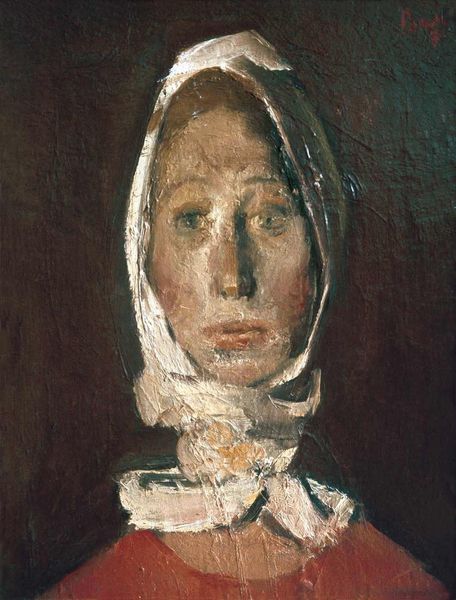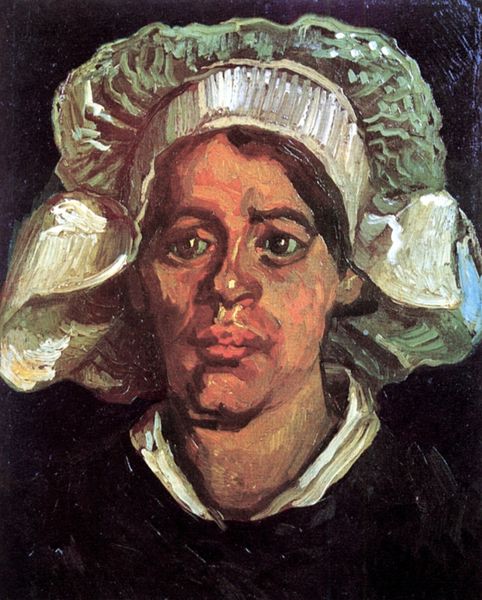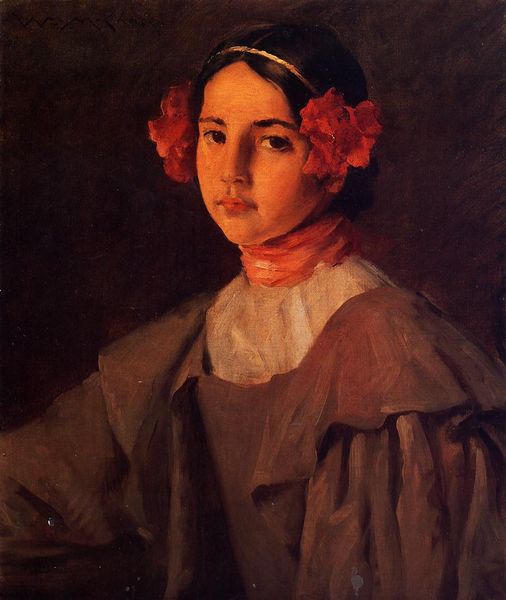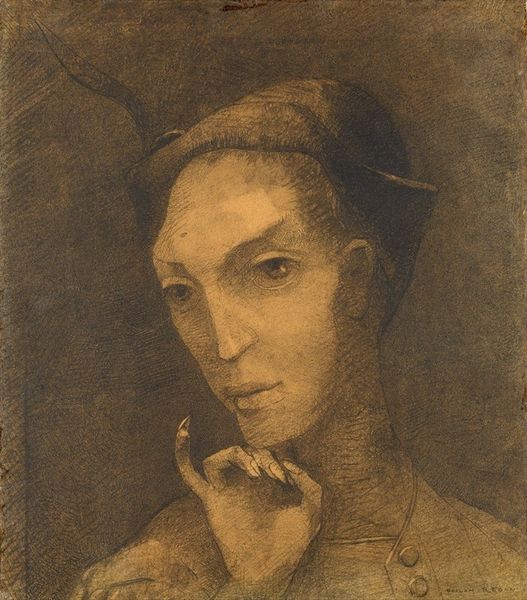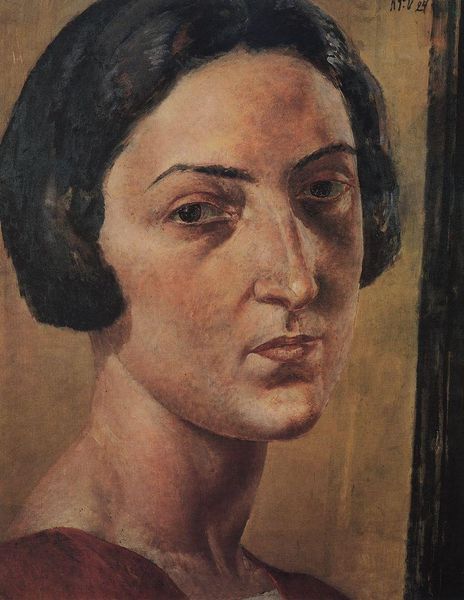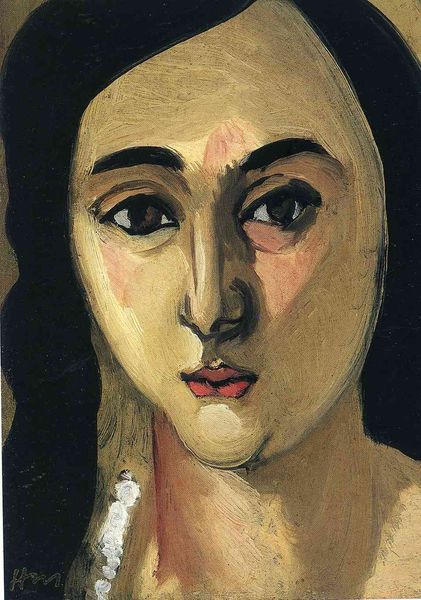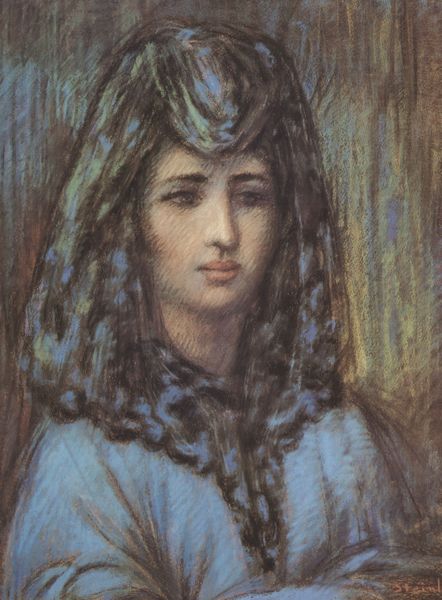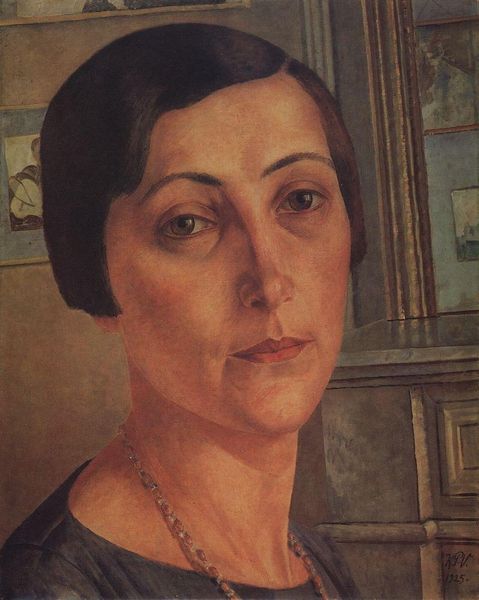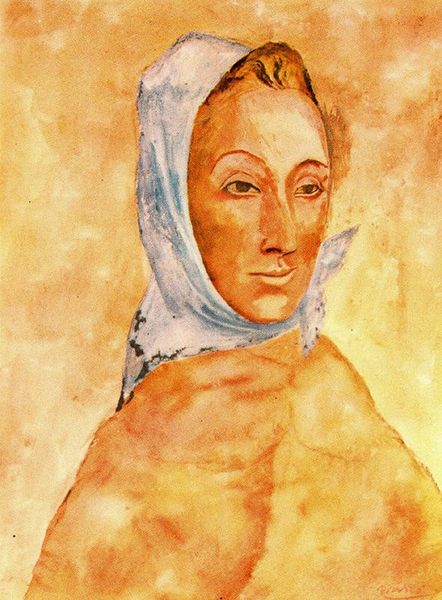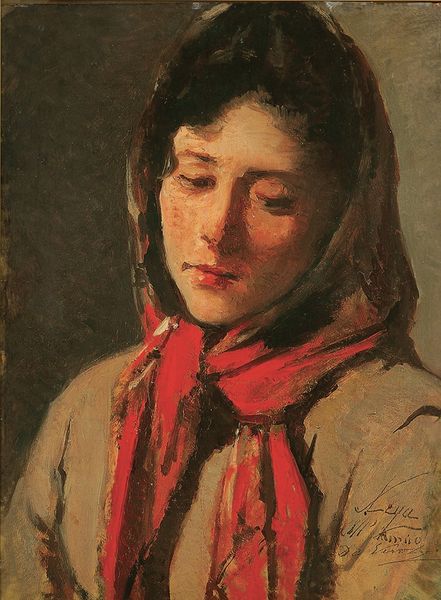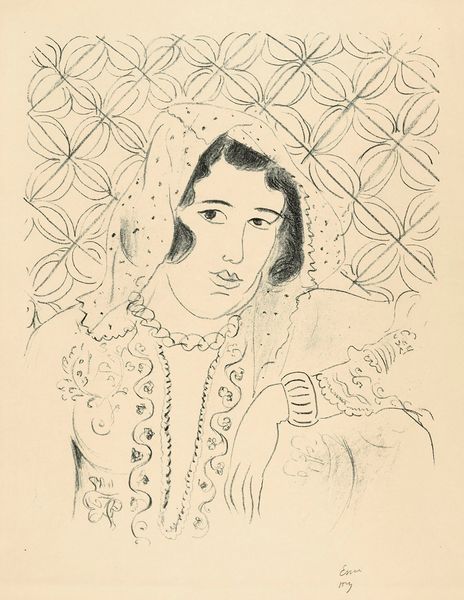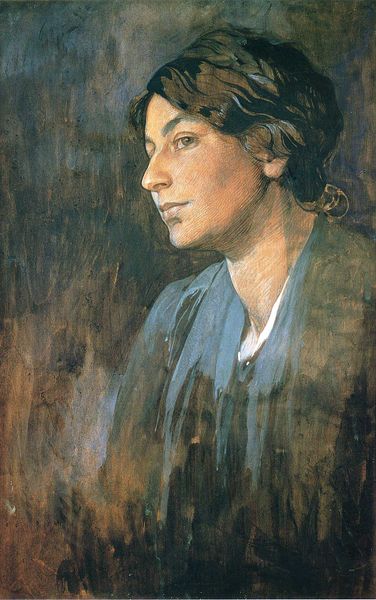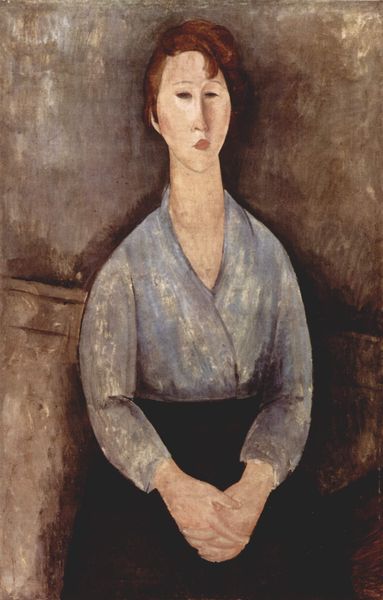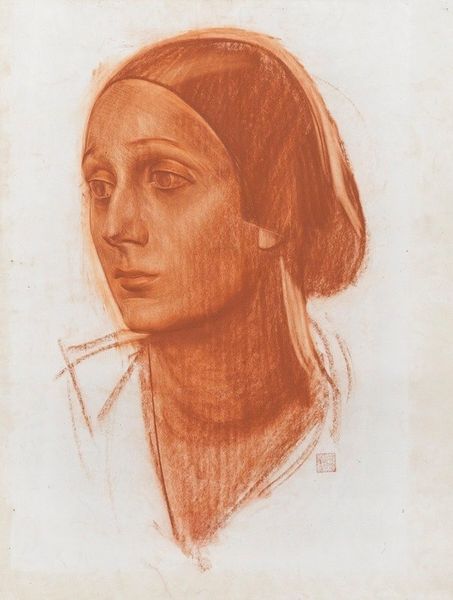
Female portrait 1595
0:00
0:00
elgrecodomenikostheotokopoulos
Philadelphia Museum of Art, Philadelphia, PA, US
painting, oil-paint
#
portrait
#
allegory
#
painting
#
oil-paint
#
mannerism
#
history-painting
Dimensions: 40 x 33 cm
Copyright: Public domain
El Greco painted this female portrait on canvas sometime in the late 16th or early 17th century, most likely in Spain. It's easy to focus on the sitter’s demure gaze and the striking use of tenebrism. But, it’s also worth considering the significance of portraiture at the time. In the Spanish Golden Age, portraiture served as a tool for social positioning. Aristocrats, clergy, and the growing merchant class used portraits to project power and status. The woman's identity remains a mystery, but her refined features and elegant attire indicate a noble background. El Greco, trained in the Venetian tradition, brought a unique sensibility to the Spanish court, and his portraits often possess an emotional intensity. He straddled the line between the traditions of the old masters and the emerging styles we now recognise as distinctly modern. To truly understand this painting, we can investigate the socio-political context of the Spanish court, the history of portraiture, and the biography of El Greco. The meaning of art is contingent on its social and institutional context.
Comments
No comments
Be the first to comment and join the conversation on the ultimate creative platform.
